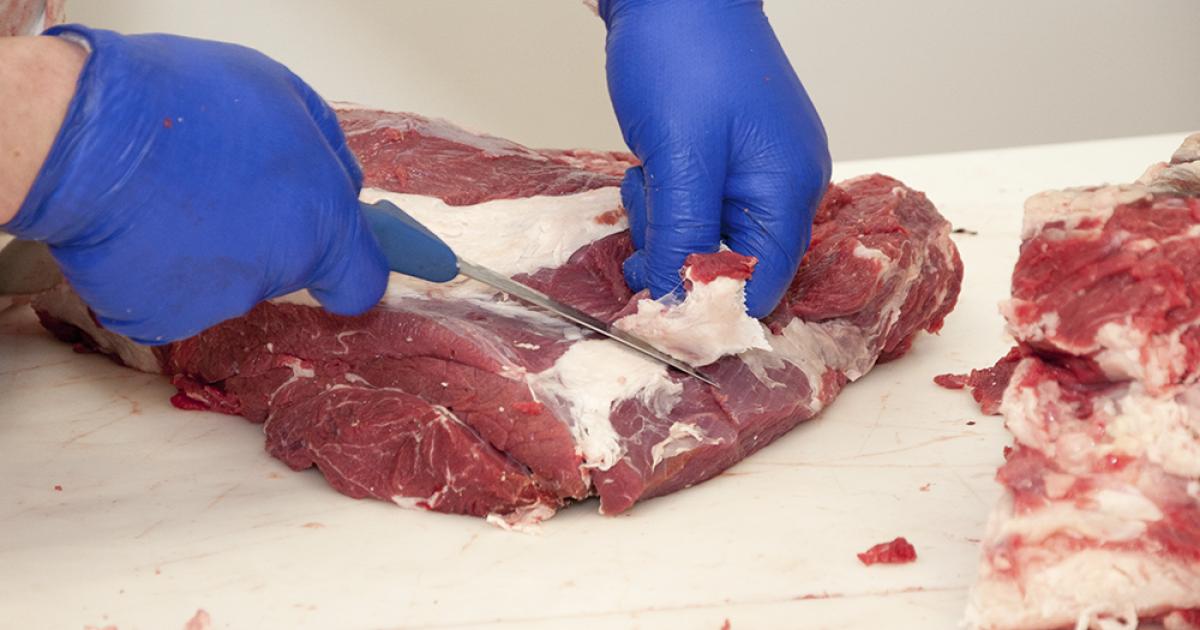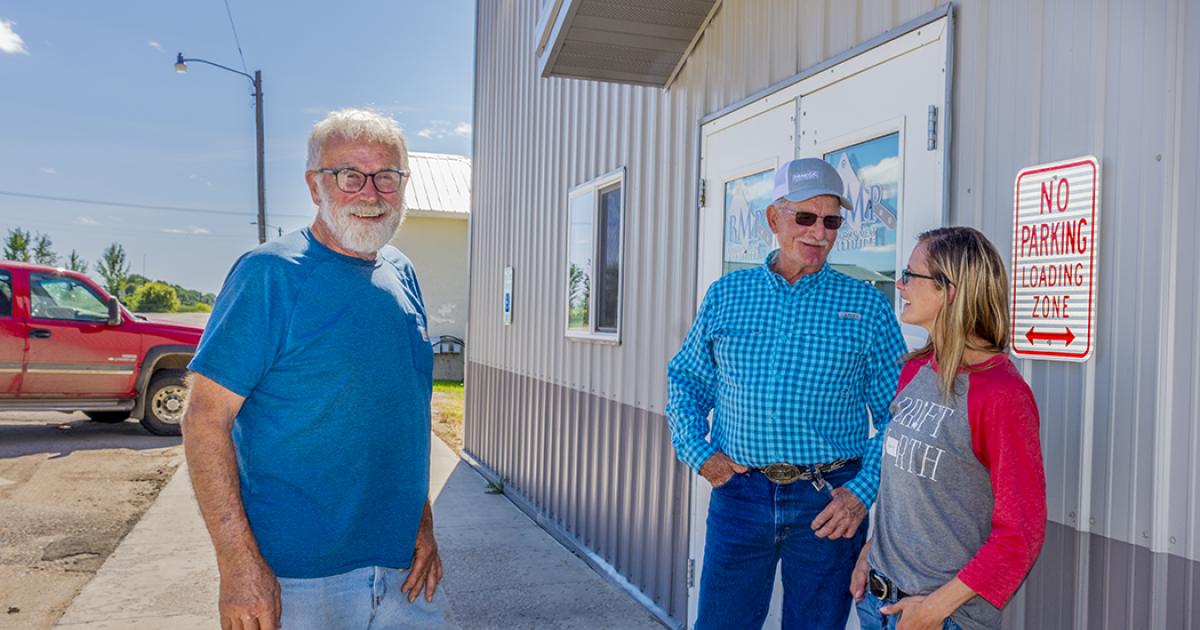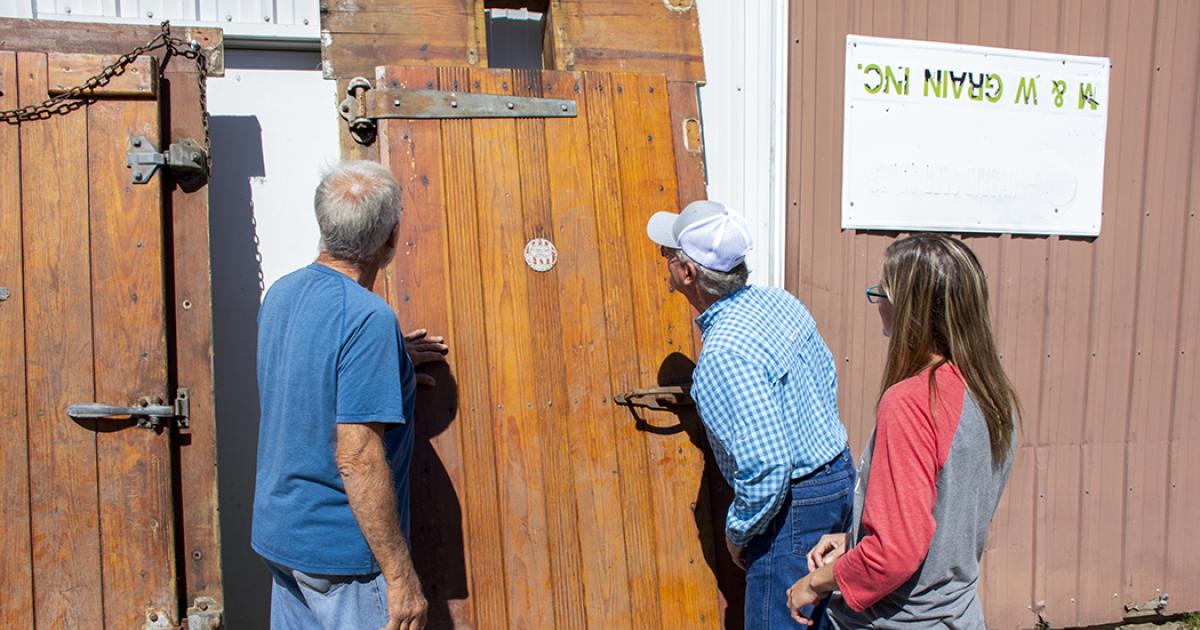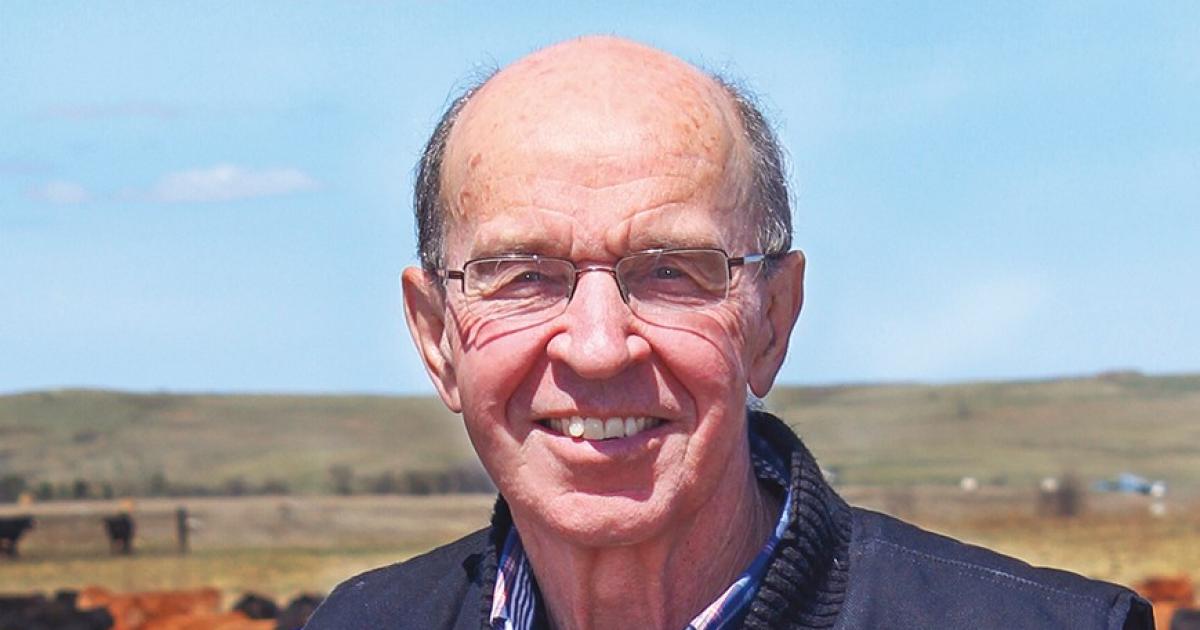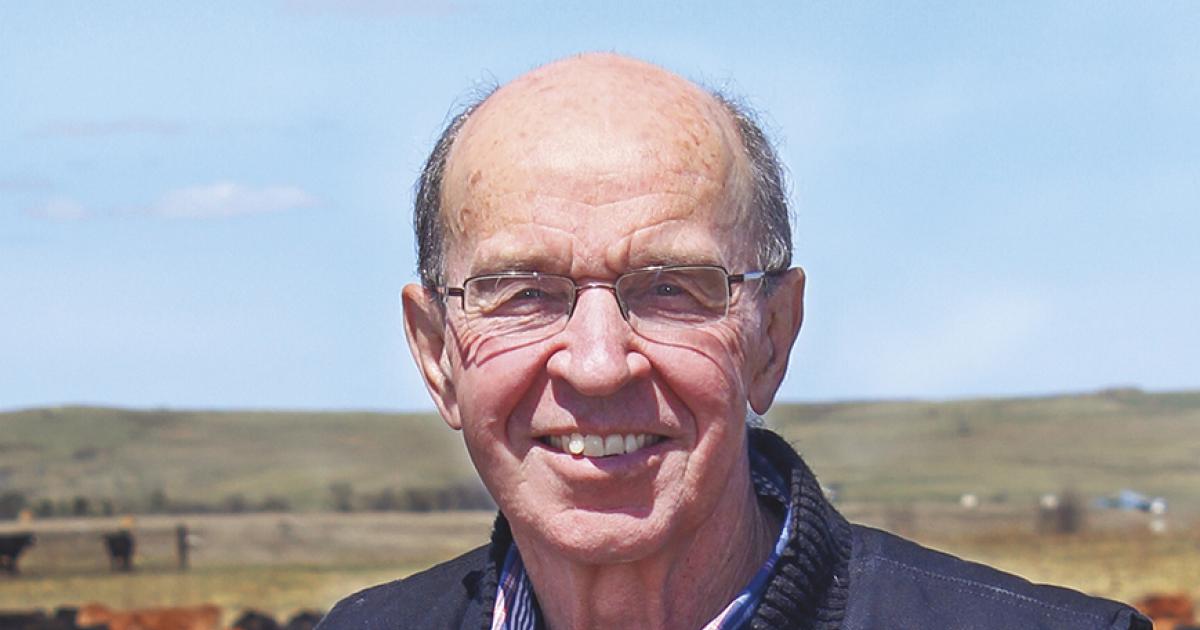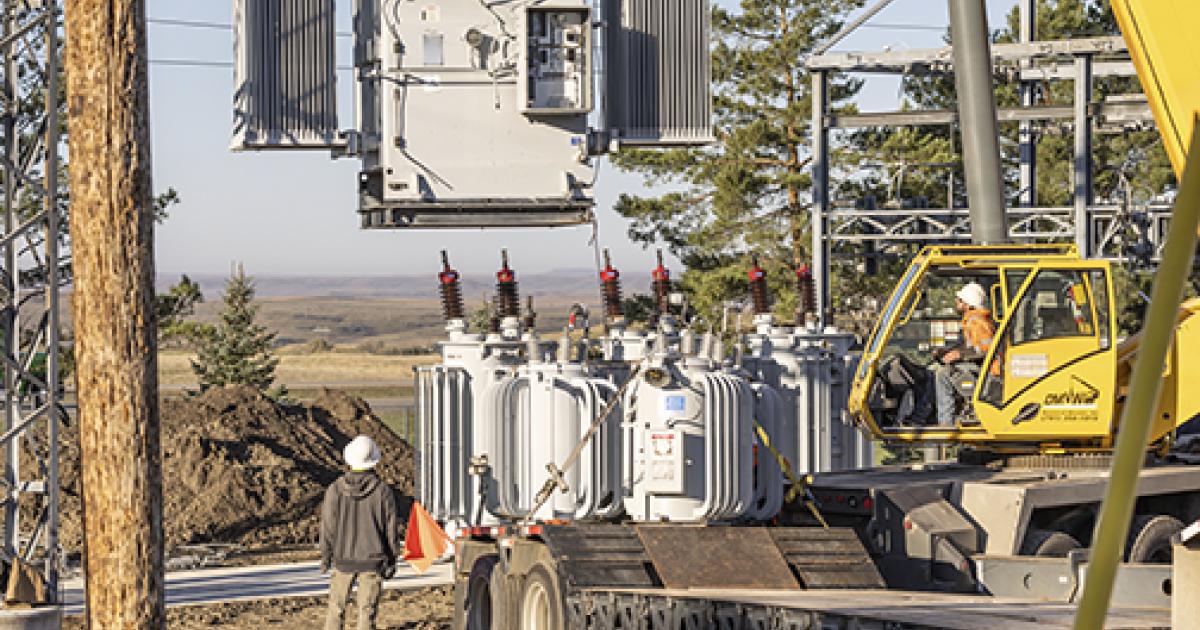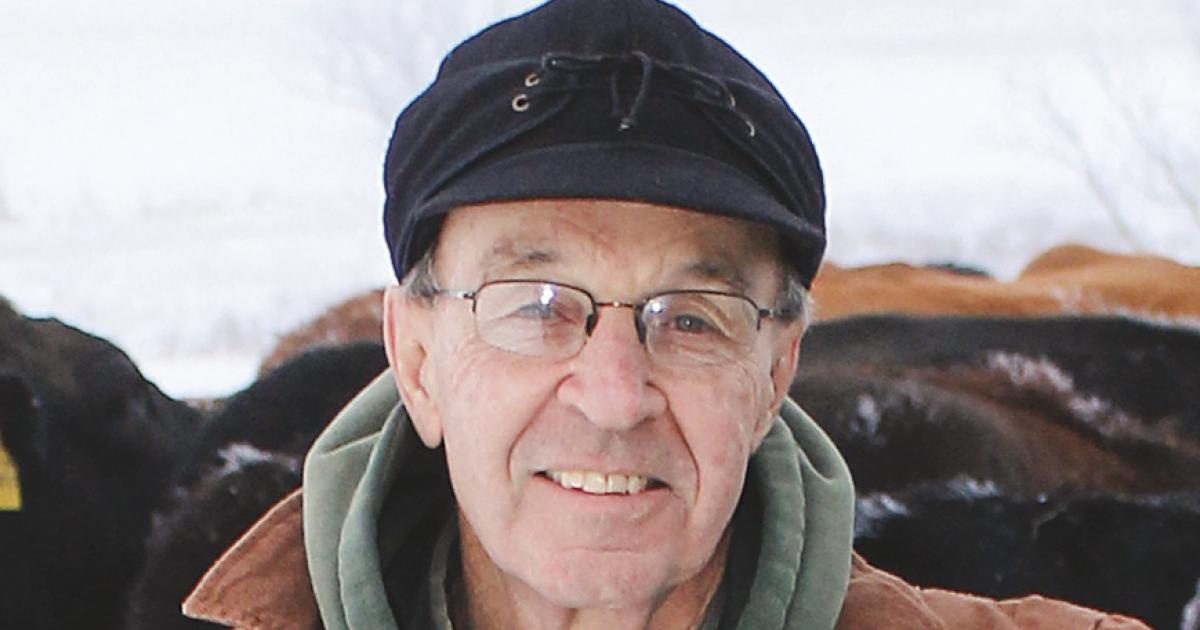Meat processing cooperative marks 10 years in business
What is your town known for?
Jamestown is the buffalo city. Bottineau takes “pride” in its ice cream. It’s hard to beat a steak in St. Anthony. And Stanley has the Sibyl Center, a small-town beacon of arts and culture.
For Bowdon, it was its meat plant and locker.
“There’s been a meat processing plant in Bowdon as long as anyone can remember, probably well over 100 years now,” says community member and local farmer Bob Martin.
Before home freezers became the norm, meat lockers were a vital institution in rural America. Whole animal processing required ample freezer storage, and refrigerators at the time did not offer enough freezer capacity. Thus, farm families would often store their frozen meat at a local locker.
Martin, Corey Hart and Laura Eide know what that was like. The Harts and Eides are N.D. Centennial Farm families.
“Growing up, I can remember walking past those big old wooden doors (at the Bowdon meat locker),” Martin says.
“I remember going down that hallway. Mom would bring a basket or a box to grab meat from the locker, and I’d sit on the stairs and wait for her,” Eide says.
In 2008, the owner of Bowdon’s meat locker and grocery died. The Bowdon school had already closed, and now the town risked losing what it was known for – its meat plant. That’s when local community members came together to save the meat plant – and preserve their community identity.
“I thought what we needed to capitalize on was our history,” Martin says.
With technical assistance from the North Dakota Association of Rural Electric Cooperatives (NDAREC) rural development center, the community formed the Bowdon Meat Processing cooperative and raised $1.2 million in funding through grants, loans and an equity drive.
Members bought shares in the cooperative to raise equity, including 72 membership shares at $100 per share and 109 preferred shares at $5,500 per share. The cooperative incorporated in 2010 after two years of conducting feasibility studies. An eight-member board of directors was elected at its first annual meeting in 2012, including Martin as president and Hart as vice president. And in 2014, the Bowdon Meat Processing cooperative opened its doors.
Today – 10 years later – the cooperative is still operational. Hart and Martin are still on the board. No additional equity shares have needed to be sold. The cooperative has made all its loan payments, managed to find and keep workers amid a nationwide workforce shortage, navigated the COVID-19 pandemic and even completed a building expansion in 2022.
What are they most proud of?
“Being open yet,” Hart says. “The doors are still open.”
“I don’t know how many more things you could have thrown at us,” Martin says.
NEW ADDITIONS
The Bowdon Meat Processing cooperative operates with a full-time staff of five. Some employees have even been with the cooperative since it opened, including Jim Hoff and Jacob Fortney. Josh Mertz and Miranda Hoff round out the team.
Eide is the fourth manager of the cooperative. She transitioned out of teaching to take on the management role in 2022.
“The last few years of teaching were stressful, and I wanted something different. I didn't know what, though. But in the spring of 2022, the school I was at in Goodrich closed, so I was forced to find something,” Eide says.
An employee told her about the opening at the plant. After meeting with the board that evening, she was hired and started a few days later.
One strength of Eide’s is knowing the local community. Martin estimates Laura’s late father, Ben Eide, supplied about 90% of the animals to the meat plant under the previous owner.
“I’m a lifer. I have known (Hart and Martin) my whole life. I grew up 4 miles north of here. … I still live on the farm that I grew up on,” she says.
Finding and keeping good employees is a top priority for the cooperative, and all agree workforce is a persistent challenge in rural communities.
“The fear of not being able to find employees or a manager is what's stopping some other communities. But (the Bowdon example) shows when you have good cooperative board oversight, you can become that employer of choice. Clearly, they set themselves apart in that regard, as demonstrated by their ability to retain those employees and fill those positions,” says Ellen Huber, NDAREC rural development services director.
The Bowdon plant has the capacity to slaughter 12 beef a week, but are currently processing about eight to 10 head weekly, Laura says. They are a state-inspected plant, which allows the cooperative to sell its meat within the state of North Dakota only.
According to data shared by the N.D. Department of Agriculture, state-inspected meat processing plants produced 1.46 million pounds of product in 2023, and processing volume is behind pace for 2024. However, state-inspected slaughter volume is ahead of last year's pace.
“I’m not exactly sure why the state-inspected slaughter count is up over last year’s, but the processing is down. I would suspect it has to do with the price of live animals to be high now, and the supplies are becoming more limited,” says Nathan Kroh, scientific information coordinator with the state Department of Agriculture.
Unlike in 2020 when the Bowdon cooperative was at capacity and booking months out, there are processing spots available today, Laura says. Interested producers are encouraged to contact the cooperative.
A rancher himself, Hart says producers come a long way to get their cattle processed in Bowdon, from the Canadian border to Cooperstown and Interstate 94 to Highway 83.
“That was one thing that shocked me, just how far people will come to process their meat here,” Laura says.
“We have had a good reputation over the years, too, as far as being clean and accommodating,” Martin says.
“I get comments from producers and customers who say they’re happy with what we do, our quality of work, how we package things and overall how we do things,” Laura says. “That makes me feel good, and it should make the board feel good.”
A new addition was added to the north side of the building on Bowdon’s main drag in 2022, which included an office, storage space and the ability to move the smoker out of the processing room. The addition, which Martin estimates cost about $130,000 to $140,000, was paid with operating cash flow.
“We didn’t have to borrow any money,” he says.
NEW FOR THE FUTURE?
Might a retail side be in the cooperative’s future? Maybe, though it will be labor dependent, Martin says.
The board is also considering upgrading its smoker. A new funding source – a separate revolving loan fund under the NDAREC rural development center umbrella funded through a $10 million grant from the U.S. Department of Agriculture’s Meat and Poultry Intermediary Lending Program – may be able to help the cooperative with the purchase. Hart says the board is looking into it.
“That’s one thing we can advertise. You can buy meat from these guys, and it’s born, raised and processed in Wells County. You can’t get much more local than that,” Martin says. “(The cooperative’s first manager), who was involved with meats judging at North Dakota State University and had a lot of experience, he said, ‘I’ve never seen as good, consistent quality as what the Harts (Corey and LeAnn) and Flicks (Mike and Nona) are bringing in here to get processed on a regular basis.’”
The cooperative is also looking to continue growing their footprint in local schools, by supplying farm-fresh beef to public schools in North Dakota. The North Dakota Beef to School Program is a grassroots project by the Independent Beef Association of North Dakota, the N.D. Beef Commission and the state Department of Agriculture. Through the program, Bowdon has supplied beef to schools in the central part of the state.
“(The beef-to-school sales) have been slow to get going. There are schools that are pretty religious about it, but for a lot, it’s still about the dollar. You can’t compete with the commodity beef,” Corey says.
As for the future, Corey hopes the Bowdon Meat Processing cooperative remains a vital processing facility in central North Dakota – a facility his children, who are carrying on the family ranching tradition, will use long after he’s “allowed” to retire from the co-op board.
“Hopefully my granddaughters will see the dividends,” Martin says.
“Hopefully they don’t have to skip two generations!” Hart quips.
As fathers, grandfathers, co-op directors and community leaders, it’s clear both men have similar desires – to leave a legacy that makes things better for the next generation. And, to make sure Bowdon keeps its spot on the map.
___
Cally Peterson is editor of North Dakota Living. She has been a proud customer and happy consumer of the Hart family’s locally born, raised and processed beef since June 2020. Corey bailed her out when she was down to three pounds of hamburger in her chest freezer. Contact her at cpeterson@ndarec.com.


